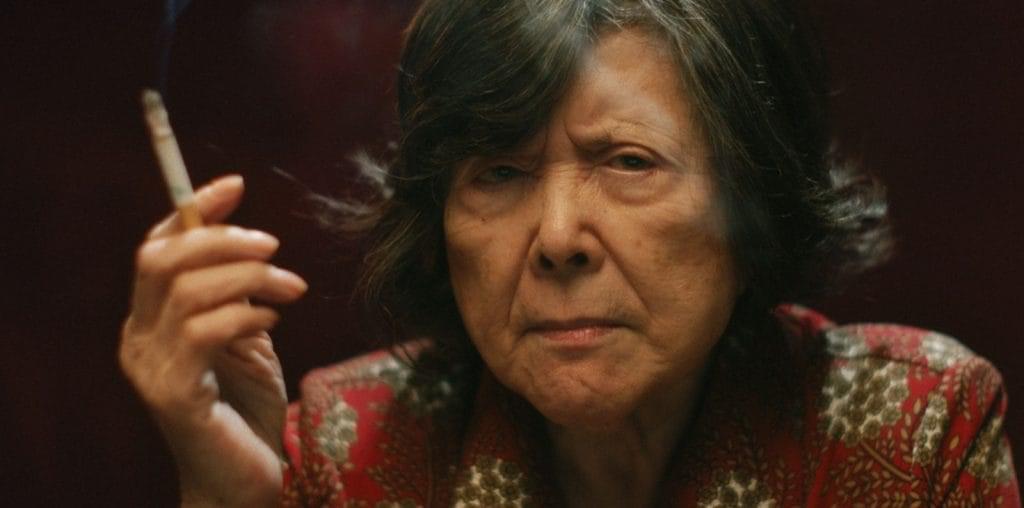
James Dean “Jimmy” Ray (director Kirk Harris) couldn’t help the fact that he was born white trash. It didn’t help when his mother’s subsequent death prompted Jimmy’s bitter father (Norman Saleet) to hit the bottle. So no, Jimmy hasn’t had it easy.
Yet, the fact that he’s still going nowhere fast at the old-enough-to-know-better age of twenty-three is all Jimmy’s fault. He acknowledges this tragic truth as he lies dying on a sidewalk, ignominiously bleeding to death from a gunshot wound to the chest that he received from onetime friend and now hotshot local drug dealer Ford Davis (Jack Rubio).
The shame of it all is that Jimmy, a streetwise philosopher of sorts, still had a lot going for him. After a mutual friend OD’d, he could have followed his older brother Brandon (Jonathan Chaus) back to school like his stunningly attractive girlfriend Alyssha (“La Femme Nikita’s” Peta Wilson) always urged. Instead, Jimmy relapsed into dealing drugs for Ford, compounded that by using more than he sold, then made a bad situation worse by brawling with Ford instead of paying him what he owed.
But the only thing easier than hindsight is regret, especially when one sees life flashing before one’s eyes. “Life is for the living,” Jimmy sums up in his plaintive narration. And living is the one thing he wasn’t doing, even before his life force ebbed away in the pool of blood spreading across his chest.
“Loser” marks a stark and very minimalist debut from writer/director/actor Harris. The film doesn’t draw its strength from star power, (all complete unknowns, including Wilson, cast here before landing the role of “Nikita”), exotic locations, (most of the film takes place inside houses and in back yards), or stunning special effects, (exactly one gunshot wound).
Instead, the gritty authenticity of its grim storyline grounds the film in reality, the adroitly handled flashbacks complement the Spartan but elegant photography, while the powerful performances of its young cast combine to power this Gen-X Tennessee Williams tragedy.
There are the inevitable chinks in the armor. Some of the dialogue is a tad on the nose, the overdubbing a little sloppy and obvious at times, the melodrama somewhat thick on occasion. Yet, “Loser” does many more things right than wrong.
Stars usually have good reason to be mortified when their earlier work comes out. There’s no shame for the fetching Ms. Wilson here, however; her performance an early indicator of bigger things to come. Harris has the fine art of glowering and dangerous brooding down to a science; his Jimmy a postal worker in waiting. Chaus does an admirable job in the largely thankless job of Jimmy’s big bro as does Saleet in the juicier role of the abusive alcoholic father. Rubio too, though not on camera long, chews up the screen as the deceptively languid but lethal drug dealer Ford.
With all of these elements going for it, this film is a solid reminder of what true independent filmmaking is all about. “Loser” is anything but.
